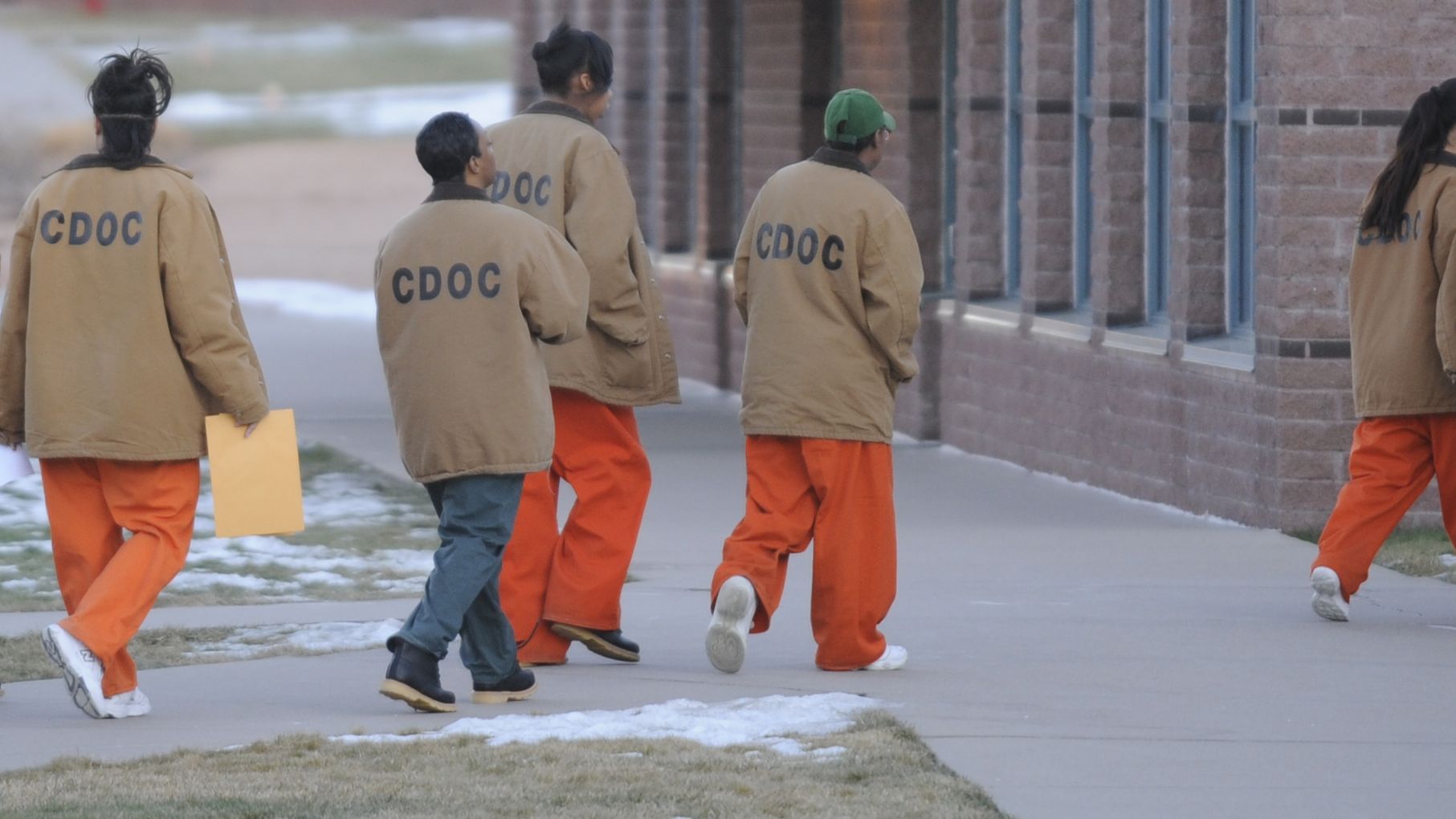Sunny Hostin Shares the Shocking Reason She Ended Up On TV
As a child, Sunny Hostin witnessed a violent crime against her uncle. Here, The View cohost shares how the experience steered her to practice law and use her platform to spark social change.
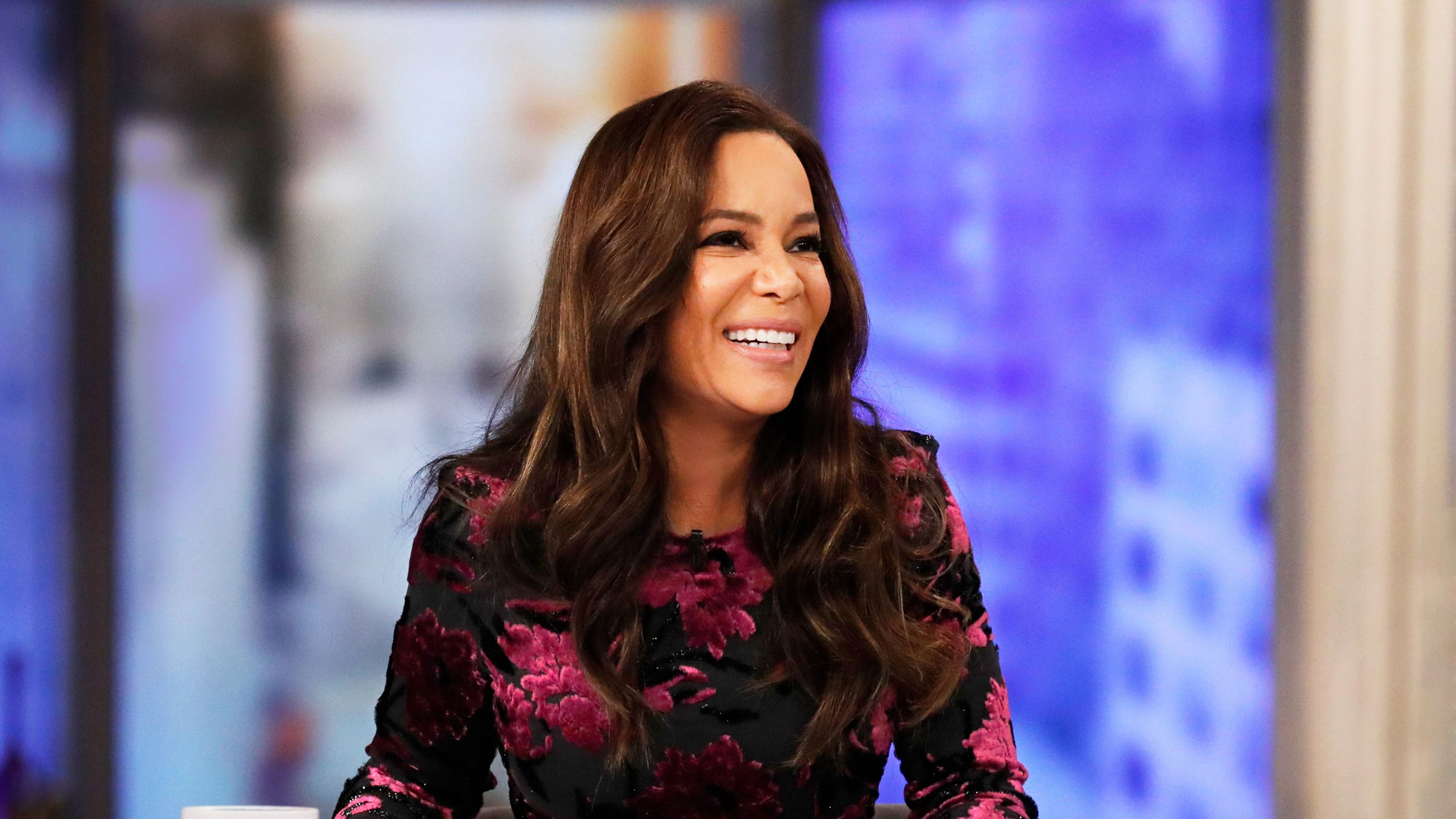
I grew up in the South Bronx in the 1970s. My dad worked in IT, and my mom was a teacher. They were a biracial couple (my dad is African American, and my mom is Puerto Rican), and all they wanted for me was opportunity. They were so loving and tried to shield me from my surroundings, but I saw plenty of violent and belligerent people in my neighborhood. Our extended family was close by, though, so we stayed.
My paternal uncle lived near us. He was younger than my dad and the rambunctious one, always loud and making jokes. One night when I was 7, we were at a neighbor’s party. There was music and dancing, though I was watching on the periphery with a book in hand. My uncle’s girlfriend was there. She was pretty—and married, it turned out. Her husband showed up at the party and began shouting. He started chasing my uncle around the apartment, stabbed him, and ran away.
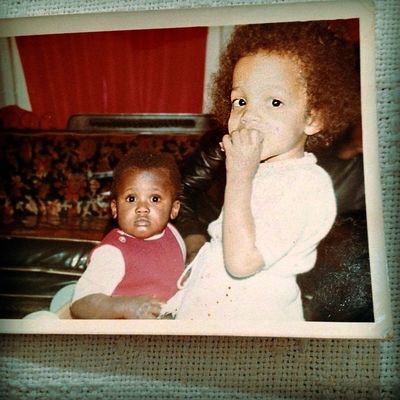
'Hostin with her cousin (in red), 1971'
As I watched, I felt like I was having an out-of-body experience. Everything was in slow motion. That feeling is cemented in my brain forever. I remember the chaos of it all: my grandmother and my father screaming, the color of the blood against the small black-and-white tiles of the bathroom he was taken to, everyone calling 911, his open stomach and the yellow shade of his insides. At the hospital, I dove into my book, The Lion, the Witch and the Wardrobe. Its protagonists walk into an armoire and end up in a fantasy world where they are royalty—and they are protected by a lion who is really a deity. I think that’s why I loved fantasy books so much. They let me escape.
My uncle’s recovery was long, but he survived. The man who stabbed him was never charged; the entire case didn’t seem urgent to the police, and I was let down by their response.
Shortly after everything happened, my parents moved our family out of the Bronx and downtown to Stuyvesant Town. I attended a Catholic school across the street from our apartment. It felt like the beginning of a change of circumstance; I almost felt guilty about the fact that I wasn’t really sad, just excited, about getting away.
I know about police brutality and their indifference to black-on-black crime.
My parents really pushed me to excel in school. Education was always important to them, so it was important to me. I studied journalism at Binghamton University, even interning for NBC’s longtime anchor Carol Jenkins. Before graduation, I told my parents I wanted to pursue broadcast journalism. They were incredulous: “Carol is a needle in a haystack,” they said. “No one looks like you on TV.” Times were different then. Instead, I took the LSAT and went to Notre Dame’s law school on scholarship.
In the back of my mind, I hoped I would eventually return to writing—yet I was also a great fit for law. I had an affinity for criminal law because I came from that background. I understood it. A lot of lawyers of color understand the inequities of the system and become defense attorneys. I wanted to work within the system because of the police response to my uncle’s stabbing. That drive made me a successful prosecutor in D.C. Many federal prosecutors were kids from wealthy backgrounds with Ivy League degrees. None went into the neighborhoods where crimes happened. I had grown up there, though, so I wasn’t fearful. I was one of the few who knocked on doors, sat on plastic-covered couches, and got a lot of people to come in as witnesses who would never have talked otherwise. I never lost a case.
Get exclusive access to fashion and beauty trends, hot-off-the-press celebrity news, and more.
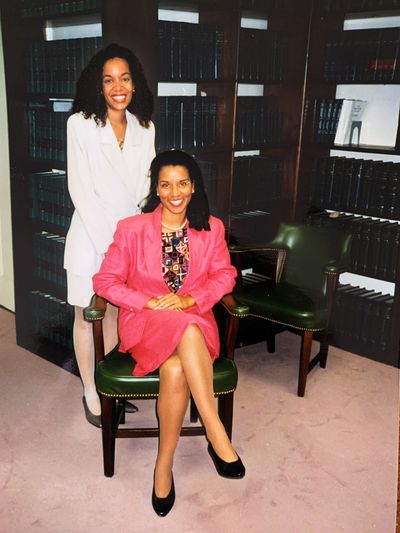
Hostin with coclerk Lisa Sifford (seated) while working in the Maryland Court of Appeals, 1995.'
My parents were proud, but my extended family had a mixed reaction: I was part of the solution but also part of the problem by putting black people in jail. If I had a case, I explained, it was because someone committed a real crime. “Do you want the neighborhood drug dealers selling to kids? Do you want gangs on streets?” I’d ask.
I worked in D.C. for years, until I got pregnant in 2001. My husband and I had tried for a long time and eventually resorted to IVF. I was on bed rest for most of my pregnancy and knew I couldn’t tackle my career with the same intensity. We moved to New York to be close to family, and I tried being a stay-at-home mom—but I drove everyone around me crazy, so I started dabbling with a few flexible law jobs. I did a presentation about work-life balance at a conference, and a producer for Court TV told me I should do television, which led to legal reporting for Court TV, Fox, CNN, and now ABC.
My background has given me a different point of view than my cohosts on The View have. I’ll never forget when Meek Mill was on our show in June 2018. He displayed a picture of his mug shot from 2007, when he was arrested at age 19. He had a swollen eye. I asked how his eye got like that. He said in all those years, I was the first person who asked him that question; he had been beaten by the arresting cops. That would have been the first question I would have asked a detective as a prosecutor. I know about police brutality and their indifference to black-on-black crime. That the man who stabbed my uncle was never charged is crazy; he had attempted murder.
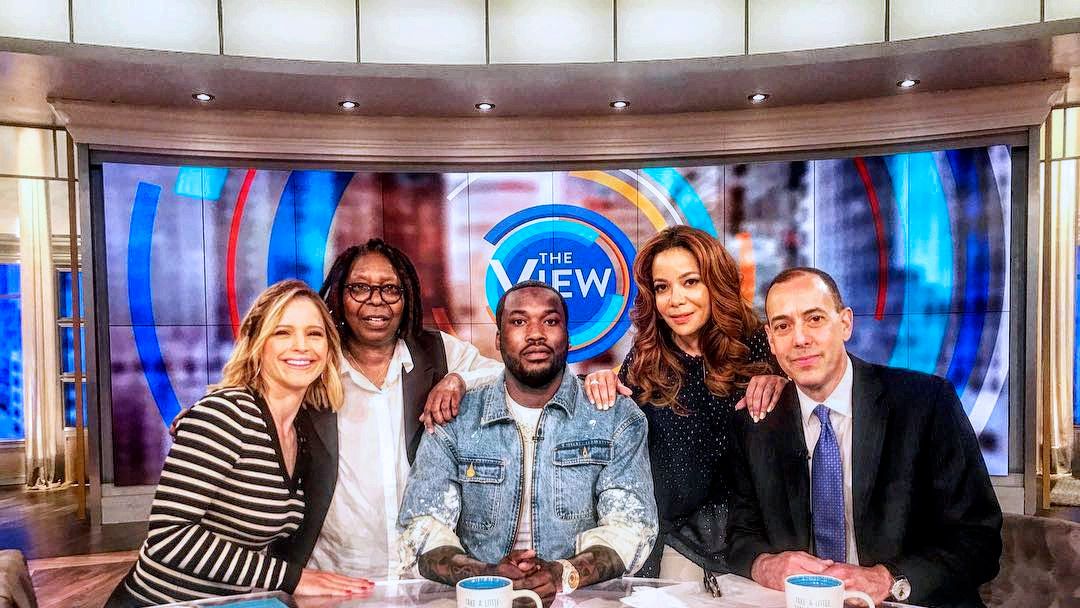
Hostin with Meek Mill (center), his lawyer (right), and fellow View cohosts Whoopi Goldberg and Sara Haines in June 2018.'
Thanks to my job, I have an incredible platform and get to ask questions that no one else would ask. I think about what I can say that helps people understand what I or my neighbors have experienced. I can give a voice to people in the community—like my uncle—who might not have one otherwise.
This story originally appeared in the June 2019 issue of Marie Claire.
RELATED STORY
